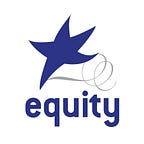TAKING CARE OF CREATIVE BUSINESS
Creativity and business savvy don’t have to be mutually exclusive. Monica Davidson’s advice on broadening your financial literacy can help you gain the confidence to manage your money independently.
Performing artists have always been at the mercy of the gig economy, a jigsaw of short-term contracts, casual employment and freelancing projects. For many of us, this puzzle is a necessary part of the choices we’ve made as artists, and some genuinely enjoy assembling the puzzle each day.
We performers are not alone. According to the recent Artists as Workers report from Creative Australia, most practitioners in other fields move between core creative work, other arts-related work and non-arts work as a way of making a living and supporting their creative practice.
This requires us to diversify our income, meaning we continue with our main creative work, adding complementary activities to the mix so we are less dependent on any one source (including grants). While it’s certainly more complicated than holding down a single job, it’s also a fascinating by-product of our chosen professional life.
When diversification is needed, it pays to think like a business, rather than an employee. Traditional employment in the performing arts can be a ‘passive’ way of working. We wait for someone to call and offer us a job, we are loyal to that contract until it’s over, then we wait patiently for another opportunity, and so on.
Thinking like a business means bringing a proactive mindset to the work. We make the first move, whether that’s coffee with a potential collaborator, a reminder email to an interested client or producing our own work. We search more widely for opportunities and make the most of the multiple creative skills we have been gifted.
Personal skills audit
Brainstorm your different areas of expertise around your core profession first:
· What are your most important skills as a performing artist?
· Have you developed any extensions to your craft? These are areas you’ve focused attention on, or found talent in, and developed beyond the basics — for example, dance or voice.
· Do you work in any specialty areas or genres, such as comedy or physical theatre?
Complementary skills
Think more broadly about your complementary and transferable skills. Are you good at:
· Something from your personal life that could be useful in your profession? Are you a parent? A good cook? Living with a disability? Do you have an affinity for animals?
· Interacting effectively with other people, influencing, leading or educating?
· Understanding and improving processes, managing projects and thinking strategically?
· Providing a vision for something new or better? Analysing and synthesising complex information?
· Being entrepreneurial? Do you enjoy marketing or have a flair for business?
· Creative work outside of your core skills, in an unrelated field?
· Speaking another language or communicating complex ideas to people?
Think about how you could bring together your diverse abilities and generate income in innovative and interesting ways.
Cheat sheet
You could also try:
· Further investigating the myriad grants, funding opportunities and financial prizes that might be applicable to your various skills.
· Teaming up with other creatives to develop products, such as downloadable goodies or merchandise that could be sold through a third party.
· Working out ways to create content over which you hold copyright, which could then be sold, licensed or used to create passive income streams, such as online workshops.
· Signing up for a subscription model of financial support, such as Patreon.
· Teaching, mentoring and sharing your expertise with others.
While these suggestions might make those ideas appear simple to accomplish, the reality is that nothing is going to generate fast, easy money — in business, there’s no such thing. Diversification is the process of patience, trial and error, testing and failure until the right combination comes along. It’s also part of a bigger picture of taking professional control, broadening your financial literacy and managing your own money. That can be a darkly mysterious (and possibly terrifying) prospect but, like anything scary, it will seem less horrible if you turn on the light. With patience, time and education, you can increase your financial literacy and feel more confident about your money management.
Try taking the first steps towards a more businesslike approach to your career and skills. Perhaps you’ll also empower your inner entrepreneur (however tiny) and move from passively waiting for that phone call to a purposeful stride in the right direction.
For more help with understanding business, money and marketing for creatives, visit creativeplusbusiness.com
Monica Davidson is a writer, filmmaker, performer and creative industries business expert. She is the director of Creative Plus Business, a social enterprise dedicated to educating creative practitioners about the basics of small business, financial literacy and marketing.
